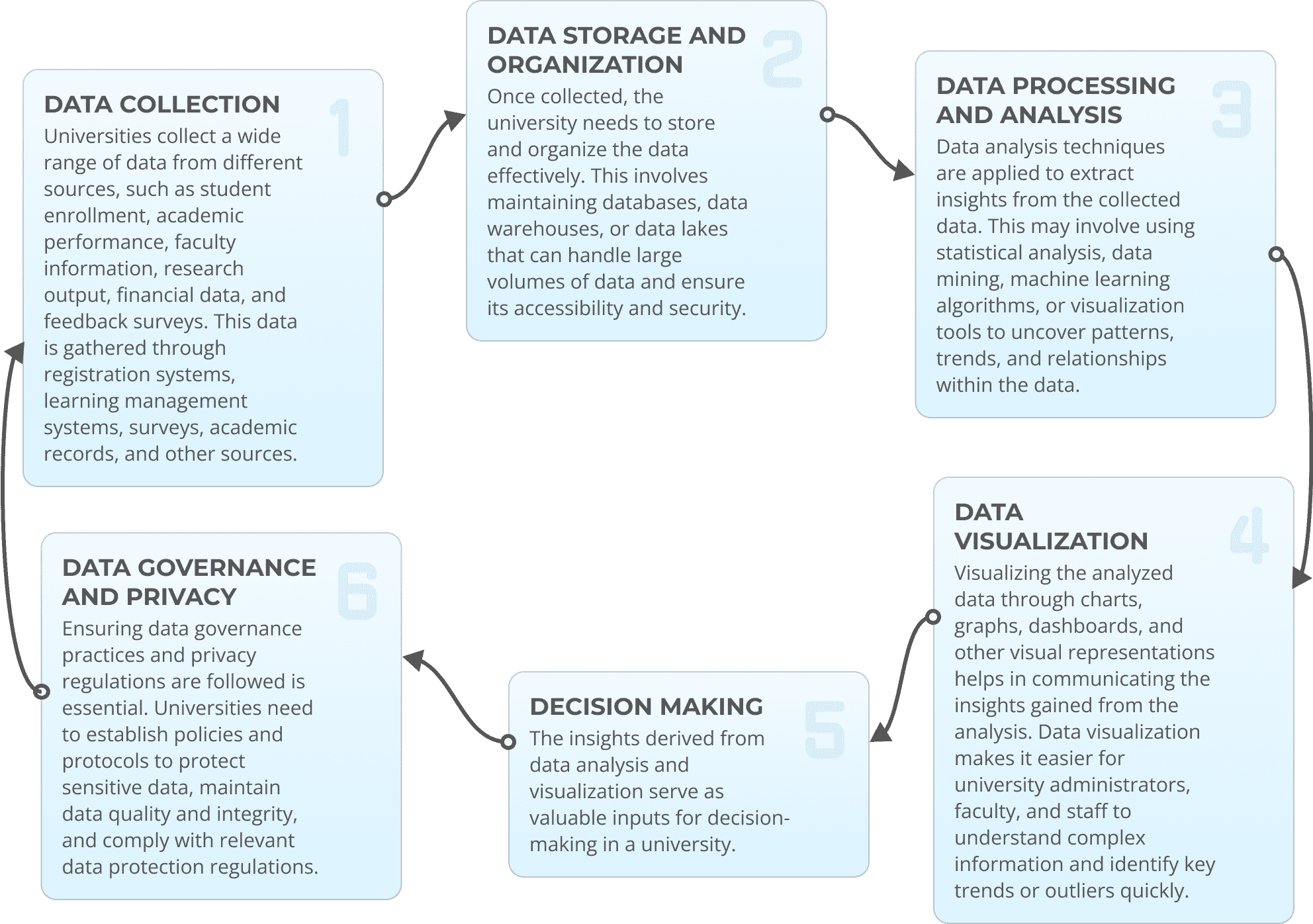DATA GOVERNANCE
To achieve SDC's vision, data governance is an important backbone to support SDC in carrying out our mission. Data Governance is comprised of the policies and processes that determine how our institution organizes the architecture, accessibility, storage, and usability of its data, while ensuring that the data is trustworthy and secure.
Data Management

Data Utilization
Student Performance Analysis
Analyzing student performance data can help identify at-risk students, assess the effectiveness of teaching methods, and provide insights for academic intervention strategies.
Enrollment and Retention Analysis
Analyzing enrollment data can help optimize recruitment efforts, evaluate the impact of marketing campaigns, and understand factors affecting student retention and graduation rates.
Financial Planning and Budgeting
Analyzing financial data can aid in budget allocation decisions, cost optimization, and forecasting revenue streams, enabling more efficient financial planning.
Research Output Evaluation
Analyzing research data, such as publications, citations, and collaboration networks, can help assess the productivity and impact of research activities, guide resource allocation for research programs, and support strategic decision-making in research initiatives.
Admissions Decisions
Data on student demographics, academic performance, and enrollment trends can inform admission policies and decisions.
Curriculum Development
Analyzing student feedback and learning outcomes data can guide curriculum revisions, course offerings, and program improvements.
Resource Allocation
Data on faculty workload, student demand, and research productivity can help allocate resources effectively, such as faculty hiring, course scheduling, and research funding decisions.
Institutional Strategy
Data-driven insights can support strategic planning, institutional accreditation, and benchmarking efforts to enhance the university's overall performance and reputation.




